#name history
Explore tagged Tumblr posts
Text

Wayne: Occupational name meaning "wagon maker, cartwright", derived from Old English wægn "wagon".
Grayson: Means "son of the steward", derived from Middle English greyve "steward".
Cain: Most likely from the given name Cain, which means "acquired" in Hebrew.
Todd: Means "fox", derived from Middle English todde.
Drake: Derived from the Old Norse byname Draki or the Old English byname Draca both meaning "dragon", both via Latin from Greek δράκων (drakon) meaning "dragon, serpent".
Head: From Middle English hed meaning "head", from Old English heafod. It may have referred to a person who had a peculiar head, who lived near the head of a river or valley, or who served as the village headman.
Thomas: Derived from the given name Thomas, which is a Greek form of the Aramaic name תָּאוֹמָא (Ta'oma') meaning "twin".
Pennyworth: From Old English pening, penig meaning "penny (the coin)" and worþ meaning "enclosure". A notable fictional bearer is Alfred Pennyworth, a DC Comics character notable for being the butler of the superhero Batman.
Thompkins: From a diminutive of the given name Thomas.
Bertinelli: ???
Gordon: From the name of a place in Berwickshire, Scotland, derived from Brythonic words meaning "spacious fort".
4 notes
·
View notes
Text
Is there anything other than behindthename or r/namenerds for researching names (etymology and history info would be best) that isn’t geared towards expectant parents?
#writeblr#writing#names#character names#name history#I’m not having a baby I’m just a writer/name nerd#beck broadcasts
11 notes
·
View notes
Text
Y’all, I was today years old when I learned that Merry’s name wasn’t some crap that Jonald made up…it was actually a real life name! Meriadoc is a super old Celtic name that goes back to at LEAST the 6th century with Saint Meriasek (alternate spelling) and the legendary founder of Brittany, Conan Meriadoc. The more you know.
#history#celtic history#Celtic#brettonic#Bretons#jrr tolkien#tolkien#lotr#lord of the rings#hobbits#etymology#Conan meriadoc#merry brandybuck#meriadoc brandybuck#name history#names
12 notes
·
View notes
Text
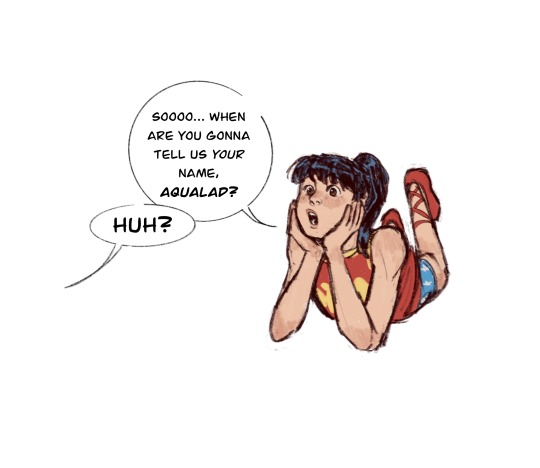
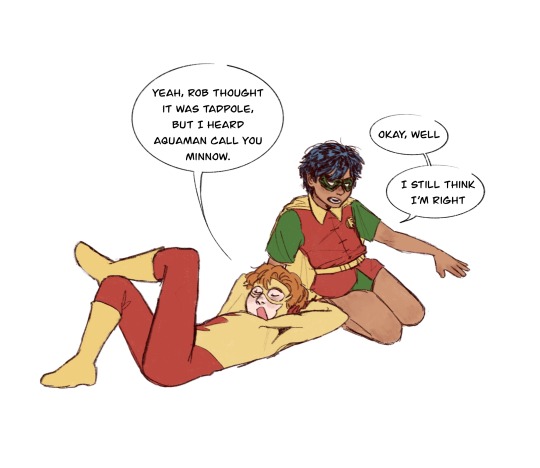
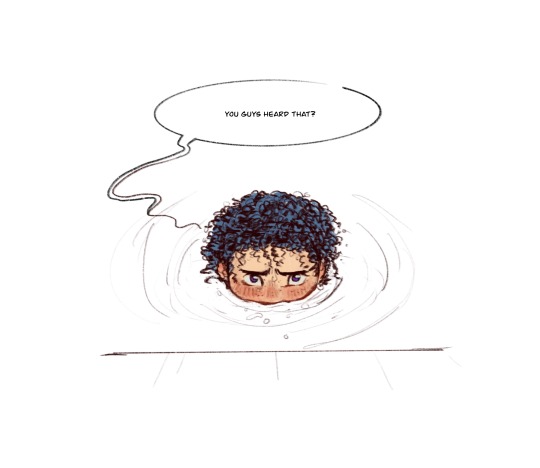
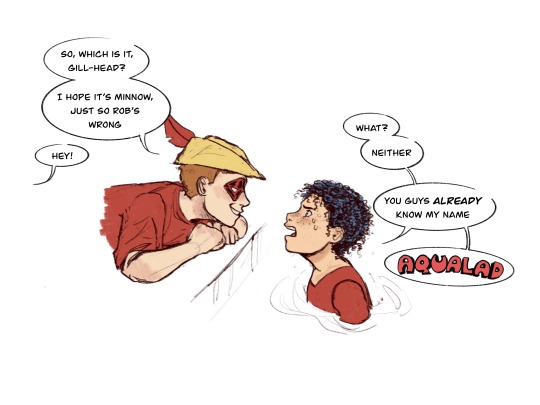
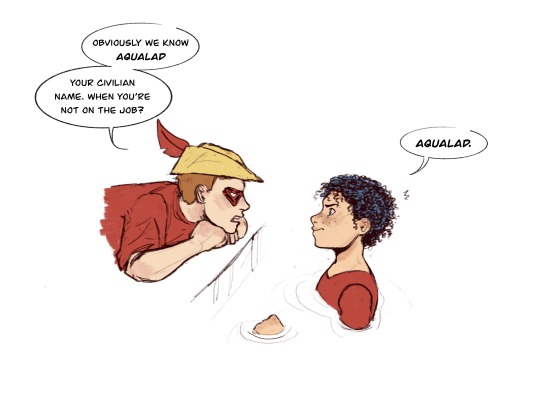
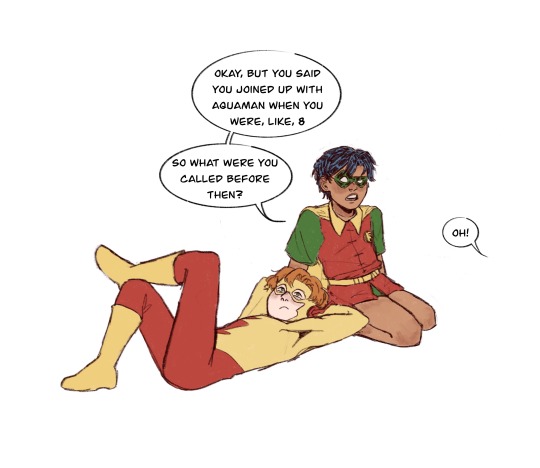
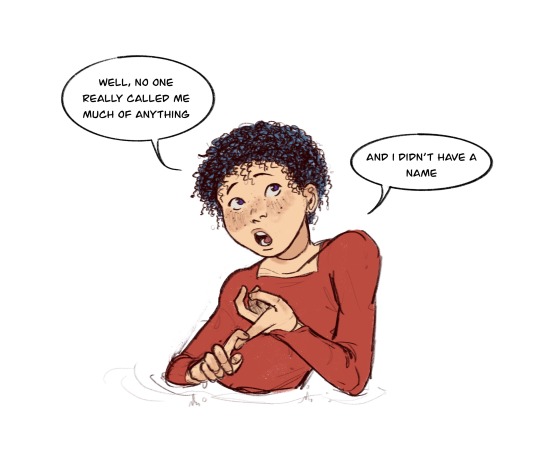
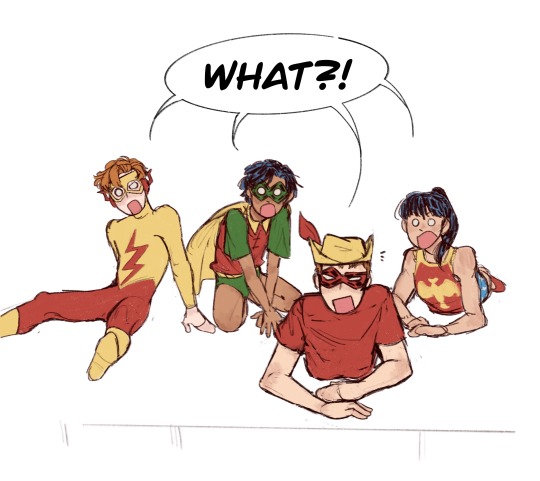
identity reveals are always fun
#batcave search history that night: friend has no name. atlantis naming conventions. atlantian names. r there birth certificates in atlantis#theyre so fun to draw guys im sick with it#also: everyone thinking 'But his name is Garth'#I know that and YOU know that but he doesn't until like..... a few years later. canonically#Unnamed Youth 'Aqualad' No Last Name#and arthur does call him both minnow and tadpole so wally n dick r both right in their own ways#and for ppl who really dont know. garth was abandoned as an infant and didnt hang w anyone until arthur took him in lol. what a life#and arthur girl...... was aqualad the best and only u could do#teen titans#fab five#donna troy#wally west#dick grayson#garth of shayeris#roy harper#dc#dc comics#my art#everyone hangin by the salt water pool so garth can hang w them :]
13K notes
·
View notes
Text










Another selection of some of the better names I've come across in Regency era newspapers recently.
#names#history#1790s#1800s#1810s#regency#regency era#yesterday I came across a 'Pleasant Cowmeadow' which I really wanted to include but it's handwritten in not the most legible handwriting
15K notes
·
View notes
Text
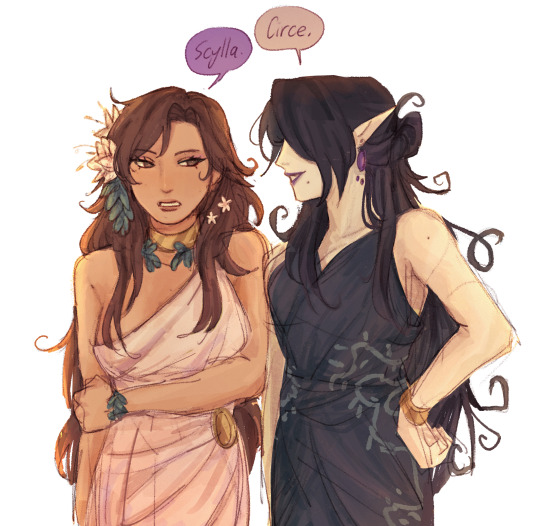
legend has it that the young witch circe and the once beautiful nymph scylla shared a complicated past...
#art#cirscylla#that's the ship name i like for them best anyway#circe#scylla#greek mythology#welcome to my greek mythos yuri#DOOMED YURI#circylla#epic the musical#do i even tag it as that? i think i should cuz epic is the reason im so into greek mythos#jorge said we might get a spinoff about their backstory and im insane over that#i know it's probably going to be about how circe loved that one guy but still a girl can dream#this is them but younger! before circe turns scylla into the horrific man-eating monster that even poseiden fears#there's just so much potential here#consider a younger and much warier circe landing on the island for the first time after being outcasted by her family for her magic#and she meets scylla there who back then is a much happier and playful person#enemies to lovers to enemies again#i don't know if they ever make it to lovers or if they were only an almost#they're about to have the worst breakup in greek history#im rambling in tags MY BAD
3K notes
·
View notes
Text






I'm gonna start calling this the "Yu Faces" or something.
#tell me you're a jjk protagonist without telling me you're a jjk protagonist#from Sendai related to someone strong from ancient history also someone know as the strongest#got siblings#names start with a yu#being a vessel to someone with a 'royal' title of curses#will eat or kiss something weird#friendly with someone from the zenin clan...#it continues...#just kiya's thoughts#jjk#jujutsu kaisen#jjk 0#jujutsu kaisen 0#yuuji itadori#itadori yuji#yuji itadori#itadori yuuji#okkotsu yuta#yuta okkotsu#yuuta okkotsu#okkotsu yuuta
4K notes
·
View notes
Text
Ego, Miettam leviter pedis latere tangens: Mietta, movere, ne in te incurram
Mietta, oculis magnis: tu Miettae calcem IMPINGIS? illius corpori sicut folli calcem impingis?! eheu! eheu! In carcerem Mater conjiciatur! In carcerem in Mille Annos conjiciatur!!!!
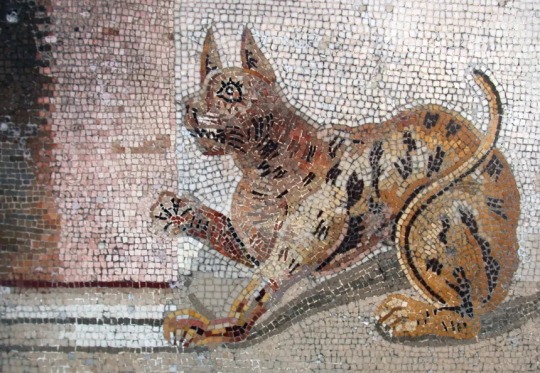
Millions of thanks to @alda-rana for a much, much better translation
#the grammar is so off. alas. just pretend its vulgar latin or some shit. i beg.#ignore previous tag we fuckin ballin rn#miette#Mietta is miette#latin be weird w names kinda#shitpost#latin#latin shitpost#latinposting#language#languageblr#romans#roman empire#romanposting#history meme
8K notes
·
View notes
Text

Crossdressing party goers in Gaza, Palestine (1960s) | ph: Kegham Djeghalian
This photo was found by Djeghalian's grandson in 2018, along with an entire collection documenting the rich culture and history of Gaza. Djeghalian survived the Armenian genocide as a toddler, fleeing to Syria, then Lebanon, before moving to Palestine, where he lived between Al-Quds and Jaffa. There he would meet his wife Zevart Nakashian, and go on to open the Kegham photography studio in Gaza.
#photography#history#1960s#gaza#palestine#tgnc#kegham djeghalian#the grandson has the same name and is on insta if u wanna check out his work n stuff c:
8K notes
·
View notes
Text
Will you love me to unveil my magic wand on you?
Reblog trans lovers💦🍆 if you want me to unveil it on you🔞

#transgender#trans artist#transzodiac#trans dating#trans pride#trans zelda#transx community#trans vtuber#trans beauty#transbian#trans bottom#trans boy#trans names#trans nsft#transsexual#trans sex worker#trans stuff#trans selfie#trans dick#transgurl#transgirl#trans goddess#trans history#trans headcanon#transharmed#transhumanism#trans journey#transjapanese#trans jokes#trans kids
2K notes
·
View notes
Text
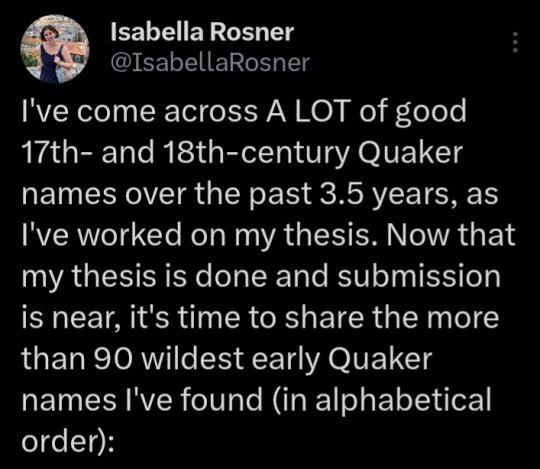
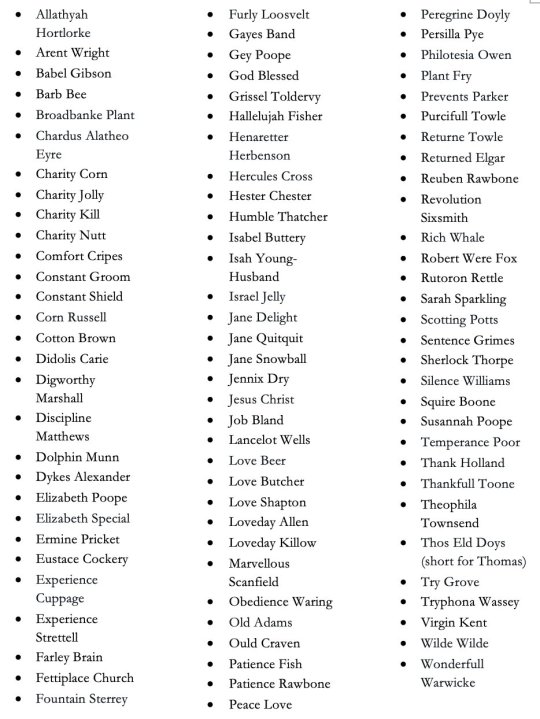
Glad everyone is getting so much joy from early Quaker names! Looking forward to seeing any future pets/children/bands/drag acts named after stuff on this list.
15K notes
·
View notes
Text
Unusual ship names
In the course of time, some quite funny names have emerged, such as HMS Pickle, HMS Beaver, HMS Black Joke or HMS Sandwich. But there are a few others that I don't want to withhold from you.
Falcon in the Fetterlock, English Warship mid 16th century
Three Ostrich Feathers, English Merchant, mid16th century
Bull, Bear and Horse, English Merchant, early 17th century
Mousenest, English Fireship, mid 17th century
Blade of Wheat, English Merchant, late 17th century
Who's afraid, English Privateer, late 18th century
Sturdy Beggar, Salem Privateer, late 18th century
Terrible, English Privateer, late 18th century
Mouse of the Mountain, Hudson River Steamer, early 19th century
Grumbler and Growler, Salem Privateer, early 19th century
Precious Ridicule, New Orleans schooner, early 19th century
Free Love, Mississippi Barque, early 19th century
Catch me who can, Baltimore Privateer, early 19th century
The Twenty - Sixth Day of October 1812, English Schooner, early 19th century
Go ask Her, Neufundland Schooner, early 19th century
Brown Smith Jones, Maryland Police Boat, late 19th century
Essence of Pepermint, Nova Scotia Schooner, late 19th century
#naval history#unusual ship names#16th -19th century#just a few#age of discovery#age of sail#age of steam
1K notes
·
View notes
Text
forever thinking about that part in people love dead jews about how it's a myth that the workers on ellis island forcibly changed people's last names and most jews just petitioned in court to have their names changed because of all the antisemitism that came with being identifiably jewish.
specifically, i'm thinking of this one guy called louis goldstein who was talking about how his name is a curse and it's impossible to live a good life in the united states while being called louis goldstein, except the judge was also called louis goldstein and was like "hey excuse you what the fuck"
#louis goldstein on louis goldstein violence#there was genuinely a ton of housing and employment discrimination#so having what people could identify as a jewish name did (and for many still does) make life harder#the section is mainly a reflection on why this has gone down in the historical memory as name changes being imposed#but the louis goldsteins live rent free in my head#antisemitism#jewish history#people love dead jews#jumblr
575 notes
·
View notes
Text
I love libraries.
I'm browsing the WWI shelves (as you do) and notice a very old book about the war. I glance at the first pages that talk about how one day the war will be over and we'll look at this place and not see any signs of the battlefield.
Then it hits me. And I check the publishing date.
This book was printed before the war's end. Not written. Printed. The physical object was created in 1918, while the war in question was raging and the end was as yet uncertain.
Now I'm standing on the other side of the apocalypse, with this physical link to that era in my hands. I'm living proof that the war did end and life did go on and we can all look at the end of the world as a long-ago memory.
Reading old books is cool enough, connecting our minds and hearts through the ideas of people who lived long ago, but there's something extra profound about holding a copy of the book that comes from the time that it was written. It's a physical link between the past and the present connecting me to those long-ago people. A piece of the past come into the future that gives me the chance to almost take the hand of some long-ago reader, to hold something they could have held, connecting not just mentally but physically to their era, a moment of connection across more than a century.
Excuse me while I go weep.
#books#history is awesome#of course i checked it out#i had no real intent to read wwi non-fic but i couldn't just leave my new friend there it'd be lonely#i want to break out in tears every time i look at it#it's so stupid but sometimes something stupid just kicks you straight in the heart and you just gotta deal#it's old front line by john masefield#i know nothing about it except thinking the author's name sounded vaguely familiar#also the interior design is fantastic#these old books know how to use white space and make something super readable#if you must know i was in the wwi section because i was at the history museum the other day#and saw a local author had a book of wwi letters#thought i'd see if the library had it#looked at the selection of non-fic surrounding it and thought of the wwi persuasion#saw many books that could be useful#and thought 'oh no this looks like fun'#it won't go anywhere i know i won't be able to focus long enough to do real research#but darn if it wasn't an appealing little daydream
1K notes
·
View notes
Text
A Guide to Historically Accurate Regency-Era Names

I recently received a message from a historical romance writer asking if I knew any good resources for finding historically accurate Regency-era names for their characters.
Not knowing any off the top of my head, I dug around online a bit and found there really isn’t much out there. The vast majority of search results were Buzzfeed-style listicles which range from accurate-adjacent to really, really, really bad.
I did find a few blog posts with fairly decent name lists, but noticed that even these have very little indication as to each name’s relative popularity as those statistical breakdowns really don't exist.
I began writing up a response with this information, but then I (being a research addict who was currently snowed in after a blizzard) thought hey - if there aren’t any good resources out there why not make one myself?
As I lacked any compiled data to work from, I had to do my own data wrangling on this project. Due to this fact, I limited the scope to what I thought would be the most useful for writers who focus on this era, namely - people of a marriageable age living in the wealthiest areas of London.
So with this in mind - I went through period records and compiled the names of 25,000 couples who were married in the City of Westminster (which includes Mayfair, St. James and Hyde Park) between 1804 to 1821.
So let’s see what all that data tells us…
To begin - I think it’s hard for us in the modern world with our wide and varied abundance of first names to conceive of just how POPULAR popular names of the past were.
If you were to take a modern sample of 25-year-old (born in 1998) American women, the most common name would be Emily with 1.35% of the total population. If you were to add the next four most popular names (Hannah, Samantha, Sarah and Ashley) these top five names would bring you to 5.5% of the total population. (source: Social Security Administration)
If you were to do the same survey in Regency London - the most common name would be Mary with 19.2% of the population. Add the next four most popular names (Elizabeth, Ann, Sarah and Jane) and with just 5 names you would have covered 62% of all women.
To hit 62% of the population in the modern survey it would take the top 400 names.
The top five Regency men’s names (John, William, Thomas, James and George) have nearly identical statistics as the women’s names.
I struggled for the better part of a week with how to present my findings, as a big list in alphabetical order really fails to get across the popularity factor and also isn’t the most tumblr-compatible format. And then my YouTube homepage recommended a random video of someone ranking all the books they’d read last year - and so I present…
The Regency Name Popularity Tier List
The Tiers
S+ - 10% of the population or greater. There is no modern equivalent to this level of popularity. 52% of the population had one of these 7 names.
S - 2-10%. There is still no modern equivalent to this level of popularity. Names in this percentage range in the past have included Mary and William in the 1880s and Jennifer in the late 1970s (topped out at 4%).
A - 1-2%. The top five modern names usually fall in this range. Kids with these names would probably include their last initial in class to avoid confusion. (1998 examples: Emily, Sarah, Ashley, Michael, Christopher, Brandon.)
B - .3-1%. Very common names. Would fall in the top 50 modern names. You would most likely know at least 1 person with these names. (1998 examples: Jessica, Megan, Allison, Justin, Ryan, Eric)
C - .17-.3%. Common names. Would fall in the modern top 100. You would probably know someone with these names, or at least know of them. (1998 examples: Chloe, Grace, Vanessa, Sean, Spencer, Seth)
D - .06-.17%. Less common names. In the modern top 250. You may not personally know someone with these names, but you’re aware of them. (1998 examples: Faith, Cassidy, Summer, Griffin, Dustin, Colby)
E - .02-.06%. Uncommon names. You’re aware these are names, but they are not common. Unusual enough they may be remarked upon. (1998 examples: Calista, Skye, Precious, Fabian, Justice, Lorenzo)
F - .01-.02%. Rare names. You may have heard of these names, but you probably don’t know anyone with one. Extremely unusual, and would likely be remarked upon. (1998 examples: Emerald, Lourdes, Serenity, Dario, Tavian, Adonis)
G - Very rare names. There are only a handful of people with these names in the entire country. You’ve never met anyone with this name.
H - Virtually non-existent. Names that theoretically could have existed in the Regency period (their original source pre-dates the early 19th century) but I found fewer than five (and often no) period examples of them being used in Regency England. (Example names taken from romance novels and online Regency name lists.)
Just to once again reinforce how POPULAR popular names were before we get to the tier lists - statistically, in a ballroom of 100 people in Regency London: 80 would have names from tiers S+/S. An additional 15 people would have names from tiers A/B and C. 4 of the remaining 5 would have names from D/E. Only one would have a name from below tier E.
Women's Names
S+ Mary, Elizabeth, Ann, Sarah
S - Jane, Mary Ann+, Hannah, Susannah, Margaret, Catherine, Martha, Charlotte, Maria
A - Frances, Harriet, Sophia, Eleanor, Rebecca
B - Alice, Amelia, Bridget~, Caroline, Eliza, Esther, Isabella, Louisa, Lucy, Lydia, Phoebe, Rachel, Susan
C - Ellen, Fanny*, Grace, Henrietta, Hester, Jemima, Matilda, Priscilla
D - Abigail, Agnes, Amy, Augusta, Barbara, Betsy*, Betty*, Cecilia, Christiana, Clarissa, Deborah, Diana, Dinah, Dorothy, Emily, Emma, Georgiana, Helen, Janet^, Joanna, Johanna, Judith, Julia, Kezia, Kitty*, Letitia, Nancy*, Ruth, Winifred>
E - Arabella, Celia, Charity, Clara, Cordelia, Dorcas, Eve, Georgina, Honor, Honora, Jennet^, Jessie*^, Joan, Joyce, Juliana, Juliet, Lavinia, Leah, Margery, Marian, Marianne, Marie, Mercy, Miriam, Naomi, Patience, Penelope, Philadelphia, Phillis, Prudence, Rhoda, Rosanna, Rose, Rosetta, Rosina, Sabina, Selina, Sylvia, Theodosia, Theresa
F - (selected) Alicia, Bethia, Euphemia, Frederica, Helena, Leonora, Mariana, Millicent, Mirah, Olivia, Philippa, Rosamund, Sybella, Tabitha, Temperance, Theophila, Thomasin, Tryphena, Ursula, Virtue, Wilhelmina
G - (selected) Adelaide, Alethia, Angelina, Cassandra, Cherry, Constance, Delilah, Dorinda, Drusilla, Eva, Happy, Jessica, Josephine, Laura, Minerva, Octavia, Parthenia, Theodora, Violet, Zipporah
H - Alberta, Alexandra, Amber, Ashley, Calliope, Calpurnia, Chloe, Cressida, Cynthia, Daisy, Daphne, Elaine, Eloise, Estella, Lilian, Lilias, Francesca, Gabriella, Genevieve, Gwendoline, Hermione, Hyacinth, Inez, Iris, Kathleen, Madeline, Maude, Melody, Portia, Seabright, Seraphina, Sienna, Verity
Men's Names
S+ John, William, Thomas
S - James, George, Joseph, Richard, Robert, Charles, Henry, Edward, Samuel
A - Benjamin, (Mother’s/Grandmother’s maiden name used as first name)#
B - Alexander^, Andrew, Daniel, David>, Edmund, Francis, Frederick, Isaac, Matthew, Michael, Patrick~, Peter, Philip, Stephen, Timothy
C - Abraham, Anthony, Christopher, Hugh>, Jeremiah, Jonathan, Nathaniel, Walter
D - Adam, Arthur, Bartholomew, Cornelius, Dennis, Evan>, Jacob, Job, Josiah, Joshua, Lawrence, Lewis, Luke, Mark, Martin, Moses, Nicholas, Owen>, Paul, Ralph, Simon
E - Aaron, Alfred, Allen, Ambrose, Amos, Archibald, Augustin, Augustus, Barnard, Barney, Bernard, Bryan, Caleb, Christian, Clement, Colin, Duncan^, Ebenezer, Edwin, Emanuel, Felix, Gabriel, Gerard, Gilbert, Giles, Griffith, Harry*, Herbert, Humphrey, Israel, Jabez, Jesse, Joel, Jonas, Lancelot, Matthias, Maurice, Miles, Oliver, Rees, Reuben, Roger, Rowland, Solomon, Theophilus, Valentine, Zachariah
F - (selected) Abel, Barnabus, Benedict, Connor, Elijah, Ernest, Gideon, Godfrey, Gregory, Hector, Horace, Horatio, Isaiah, Jasper, Levi, Marmaduke, Noah, Percival, Shadrach, Vincent
G - (selected) Albion, Darius, Christmas, Cleophas, Enoch, Ethelbert, Gavin, Griffin, Hercules, Hugo, Innocent, Justin, Maximilian, Methuselah, Peregrine, Phineas, Roland, Sebastian, Sylvester, Theodore, Titus, Zephaniah
H - Albinus, Americus, Cassian, Dominic, Eric, Milo, Rollo, Trevor, Tristan, Waldo, Xavier
# Men were sometimes given a family surname (most often their mother's or grandmother's maiden name) as their first name - the most famous example of this being Fitzwilliam Darcy. If you were to combine all surname-based first names as a single 'name' this is where the practice would rank.
*Rank as a given name, not a nickname
+If you count Mary Ann as a separate name from Mary - Mary would remain in S+ even without the Mary Anns included
~Primarily used by people of Irish descent
^Primarily used by people of Scottish descent
>Primarily used by people of Welsh descent
I was going to continue on and write about why Regency-era first names were so uniform, discuss historically accurate surnames, nicknames, and include a little guide to finding 'unique' names that are still historically accurate - but this post is already very, very long, so that will have to wait for a later date.
If anyone has any questions/comments/clarifications in the meantime feel free to message me.
Methodology notes: All data is from marriage records covering six parishes in the City of Westminster between 1804 and 1821. The total sample size was 50,950 individuals.
I chose marriage records rather than births/baptisms as I wanted to focus on individuals who were adults during the Regency era rather than newborns. I think many people make the mistake when researching historical names by using baby name data for the year their story takes place rather than 20 to 30 years prior, and I wanted to avoid that. If you are writing a story that takes place in 1930 you don’t want to research the top names for 1930, you need to be looking at 1910 or earlier if you are naming adult characters.
I combined (for my own sanity) names that are pronounced identically but have minor spelling differences: i.e. the data for Catherine also includes Catharines and Katherines, Susannah includes Susannas, Phoebe includes Phebes, etc.
The compound 'Mother's/Grandmother's maiden name used as first name' designation is an educated guesstimate based on what I recognized as known surnames, as I do not hate myself enough to go through 25,000+ individuals and confirm their mother's maiden names. So if the tally includes any individuals who just happened to be named Fitzroy/Hastings/Townsend/etc. because their parents liked the sound of it and not due to any familial relations - my bad.
I did a small comparative survey of 5,000 individuals in several rural communities in Rutland and Staffordshire (chosen because they had the cleanest data I could find and I was lazy) to see if there were any significant differences between urban and rural naming practices and found the results to be very similar. The most noticeable difference I observed was that the S+ tier names were even MORE popular in rural areas than in London. In Rutland between 1810 and 1820 Elizabeths comprised 21.4% of all brides vs. 15.3% in the London survey. All other S+ names also saw increases of between 1% and 6%. I also observed that the rural communities I surveyed saw a small, but noticeable and fairly consistent, increase in the use of names with Biblical origins.
Sources of the records I used for my survey:
Ancestry.com. England & Wales Marriages, 1538-1988 [database on-line].
Ancestry.com. Westminster, London, England, Church of England Marriages and Banns, 1754-1935 [database on-line].
#history#regency#1800s#1810s#names#london#writing resources#regency romance#jane austen#bridgerton#bridgerton would be an exponentially better show if daphne's name was dorcas#behold - the reason i haven't posted in three weeks
12K notes
·
View notes
Text
Tribal Names
I don’t think many people, even some native people, are aware that the legal names of many tribes are actually not from the tribe.
Often the names came about because colonizers would ask one tribe "hey, what do you call those people over there?". then they would assign the name given to that tribe. so often the names were descriptions from unrelated tribes, or in more extreme cases, insults.
The Muscogee tribe got pretty lucky since the legal name was "creek" and it came from a different tribe going "oh, those are the people near the creek". which, is accurate enough, most creek settlements were placed along creeks. a famous one that is related to the Muscogee is the name "Cherokee". "Cherokee" is a Muscogee word meaning something along the lines of "people who don’t speak our language". Even this is pretty light compared to some names. some official tribal names translate to phrases like "dog eaters" or "lazy people".
This is why it’s not uncommon for tribes to start using older names. Muscogee comes from the term for our people "Mvskoke", and the tribe has made efforts to distance itself from the name "Creek". Although it is likely still the name you’ll hear most often.
#muscogee#mvskoke#native blogs#native american#indigenous blog#indigenous#native girls#indigenous history#muskogee#cherokee#oklahoma#native americans#tribal names#tribes#north american history#creek tribe
2K notes
·
View notes